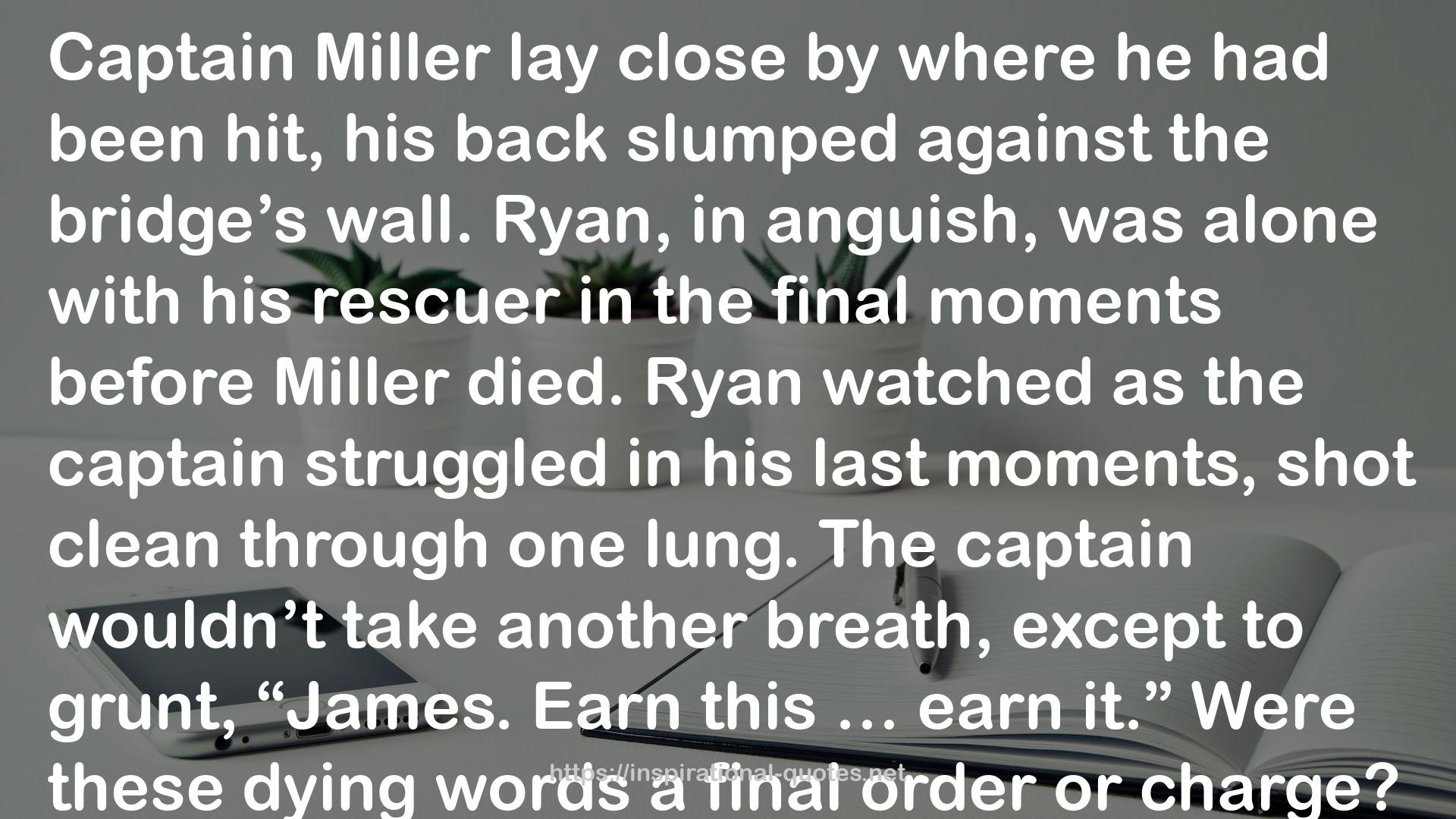" Captain Miller lay close by where he had been hit, his back slumped against the bridge’s wall. Ryan, in anguish, was alone with his rescuer in the final moments before Miller died. Ryan watched as the captain struggled in his last moments, shot clean through one lung. The captain wouldn’t take another breath, except to grunt, “James. Earn this … earn it.” Were these dying words a final order or charge? Private Ryan has always taken it that way. These memories rivet the aged James Ryan, who now finds himself staring at the grave marker and mumbling to his dead commander. He tells Captain Miller that his family is with him. He confesses that he wasn’t sure how he would feel about coming to the cemetery today. He wants Captain Miller to know that every day of his life he’s thought of their conversation at the bridge, of Miller’s dying words. Ryan has tried to live a good life, and he hopes he has. At least in the captain’s eyes, he hopes he’s “earned it,” that his life has been worthy of the sacrifice Captain Miller and the other men made of giving their lives for his. As Ryan mutters these thoughts, he cannot help wondering how any life, however well lived, could be worthy of his friends’ sacrifice. The old man stands up, but he doesn’t feel released. The question remains unanswered. His wife comes to his side again. He looks at her and pleads, “Tell me I’ve led a good life.” Confused by his request, she responds with a question: “What?” He has to know the answer. He tries to articulate it again: “Tell me I’m a good man.” The request flusters her, but his earnestness makes her think better of putting it off. With great dignity, she says, “You are. "
― Charles W. Colson , The Good Life
